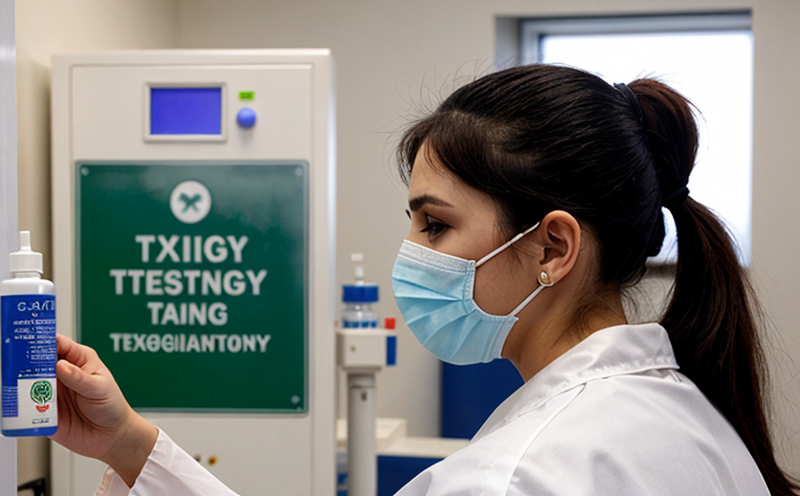Subchronic Inhalation Toxicity Testing OECD 413
The OECD 413: Subchronic Inhalation Toxicity Test in Rodents is a critical component of the regulatory process for assessing the potential health risks associated with inhalation exposure to chemicals or pharmaceuticals. This test evaluates whether a substance poses any adverse effects on the respiratory system and other organs when administered via inhalation over an extended period, typically 90 days.
This testing protocol is essential in the development of new drugs, chemicals, and industrial processes where inhalation exposure might occur during production or use. It is conducted under strict international guidelines to ensure consistency and reliability across different regulatory bodies worldwide. The OECD (Organisation for Economic Co-operation and Development) has standardized this test to provide a robust framework that all participating countries can adhere to.
The testing process involves exposing groups of rodents to the substance in question through inhalation over 90 days, monitoring their health status daily. Parameters such as body weight, food consumption, clinical signs, and mortality are carefully recorded. Additionally, detailed histopathological examinations are conducted on tissues from various organs post-exposure.
The OECD 413 test is particularly important for pharmaceutical companies developing new drugs that may be inhaled during treatment or exposure to industrial environments where inhalation could occur. It helps identify early-stage toxicity issues and guides the development of safer products for human use. The results are used to inform regulatory submissions, which ultimately determine whether a substance can proceed through clinical trials.
Understanding the context is crucial when interpreting test outcomes. For instance, if significant changes in respiratory parameters or other health indicators are observed, it signals the need for further investigation into the substance's safety profile. This information is invaluable for researchers and development teams as they refine their products to minimize potential risks.
The OECD 413 protocol ensures that all tests conducted under its framework meet stringent quality standards, promoting transparency and reliability in regulatory decisions. Compliance with this standard helps ensure that only safe substances enter the market, protecting public health and the environment.
- Body Weight Changes: Monitoring body weight is a key indicator of overall health status during the test period.
- Daily Clinical Observations: Regular checks for any signs of illness or distress are crucial in identifying potential issues early on.
- Mortality Rates: Tracking how many animals die throughout the study helps assess the lethality of the substance being tested.
- Histopathological Analysis: Post-exposure examinations of organ tissues provide detailed insights into any structural damage or alterations caused by the substance.
The process not only provides a comprehensive assessment but also ensures that all stakeholders have confidence in the results. By adhering to this standardized protocol, pharmaceutical companies can demonstrate their commitment to ethical research and responsible product development.
Eurolab Advantages
At Eurolab, we pride ourselves on delivering excellence in every aspect of our services, ensuring that your pharmaceutical testing needs are met with precision and reliability. Our expertise in conducting OECD 413 tests is backed by a team of highly qualified professionals who understand the complexities involved in this critical process.
We offer several key advantages when it comes to executing subchronic inhalation toxicity tests:
- Comprehensive Support: From initial consultation on study design to final report generation, our experts provide full support throughout the entire testing cycle. Whether you're looking for guidance on selecting appropriate species or need help interpreting results, we have the knowledge and experience to assist.
- State-of-the-Art Facilities: Our laboratories are equipped with cutting-edge facilities that meet all necessary regulatory requirements. This ensures accurate and reproducible test outcomes, giving you peace of mind regarding the quality of our work.
- Experienced Staff: Our dedicated team comprises professionals who specialize in various areas related to toxicology and safety pharmacology testing. Their extensive experience allows them to handle even the most challenging projects with ease.
- Strict Compliance: Adherence to international standards guarantees that our tests comply with relevant regulations across different regions, ensuring seamless integration into global regulatory frameworks.
- Prompt Communication: Keeping you informed every step of the way through regular updates ensures transparency and fosters strong working relationships between us and our clients.
- Client-Centric Approach <|im_start|><|im_start|>游戏代答





